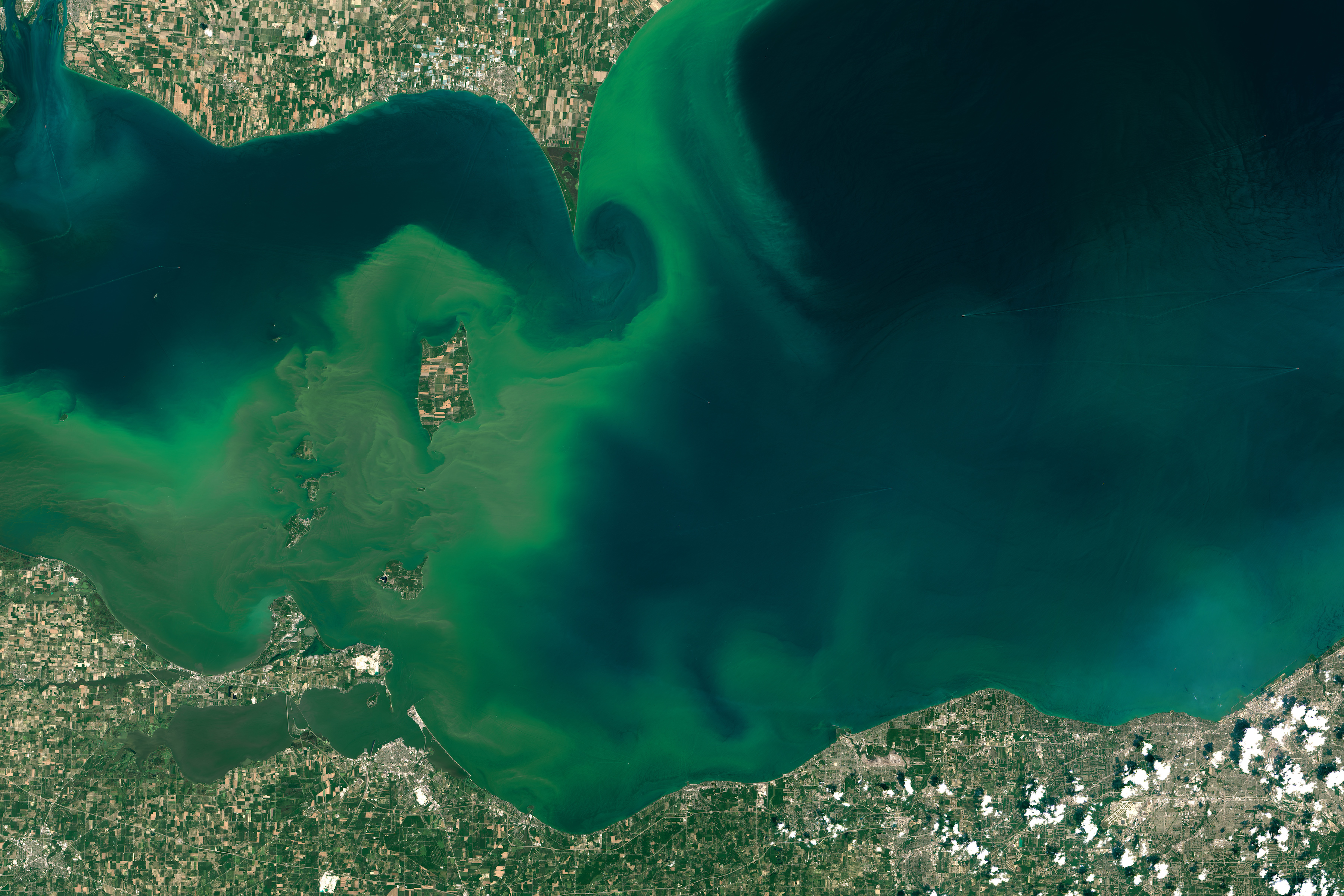In this episode, we look into what a loss in federal funding could mean for the Great Lakes. Plus, a researcher’s new theory about pollution and the fracking industry. And, while the Trump administration champions fossil fuels, the solar industry continues to boom.
Listen to this episode (29:00)
Stories in this episode
 On Health Effects, Blame the Trucks, Not the Fracking? - Scientists have linked fracking with health issues for people who live near gas wells. Many wonder whether the fracking process itself is to blame. But one researcher thinks the problem might have nothing to do with fracking, but rather something we see so often, we hardly ever notice it.
On Health Effects, Blame the Trucks, Not the Fracking? - Scientists have linked fracking with health issues for people who live near gas wells. Many wonder whether the fracking process itself is to blame. But one researcher thinks the problem might have nothing to do with fracking, but rather something we see so often, we hardly ever notice it. Can This Green Method Of Disposing Leftover Drilling Water Beat A Hole In The Ground? - Since energy companies have been fracking, they've been trying to figure out the best way to deal with the chemical and mineral-laced water that gurgles out of the wells. Some of the wastewater is transported to Ohio where it is injected thousands of feet into the ground, and where it's been known to cause earthquakes. But a new company in thinks it can do better by building on an old technology.
Can This Green Method Of Disposing Leftover Drilling Water Beat A Hole In The Ground? - Since energy companies have been fracking, they've been trying to figure out the best way to deal with the chemical and mineral-laced water that gurgles out of the wells. Some of the wastewater is transported to Ohio where it is injected thousands of feet into the ground, and where it's been known to cause earthquakes. But a new company in thinks it can do better by building on an old technology. Research on Lake Erie’s Harmful Algae Blooms Imperiled - When toxins from a harmful algal bloom caused Toledo to issue a “Do Not Drink Advisory” to 400,000 people, Ohio Sea Grant was a first responder. But now the program, which manages over 50 different projects focused on the blooms, is on the Trump administration's chopping block.
Research on Lake Erie’s Harmful Algae Blooms Imperiled - When toxins from a harmful algal bloom caused Toledo to issue a “Do Not Drink Advisory” to 400,000 people, Ohio Sea Grant was a first responder. But now the program, which manages over 50 different projects focused on the blooms, is on the Trump administration's chopping block.  Could There Be Subsidized Air Conditioning in Pennsylvania’s Future? - Climate change will bring longer, hotter heat waves to Pennsylvania. Some are worried how those living without air conditioning will survive. With President Trump pulling out of the global climate agreement, there’s a new push to get cities and states to pick up the slack. And they might also have to pick up the tab.
Could There Be Subsidized Air Conditioning in Pennsylvania’s Future? - Climate change will bring longer, hotter heat waves to Pennsylvania. Some are worried how those living without air conditioning will survive. With President Trump pulling out of the global climate agreement, there’s a new push to get cities and states to pick up the slack. And they might also have to pick up the tab. Why Does Pennsylvania Have Only a Handful of Natural Lakes? - Pennsylvania has a lot of groundwater and gets a ton of rain every year. But when it comes to lakes, we're sorely lacking. So what's up with that?
Why Does Pennsylvania Have Only a Handful of Natural Lakes? - Pennsylvania has a lot of groundwater and gets a ton of rain every year. But when it comes to lakes, we're sorely lacking. So what's up with that?

